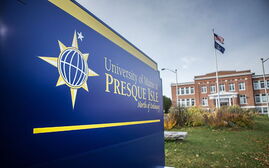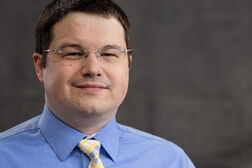Processing Your Payment
Please do not leave this page until complete. This can take a few moments.
- News
-
Editions
-
- Lists
-
Viewpoints
-
Our Events
-
Event Info
- Women's Leadership Forum 2025
- On the Road with Mainebiz in Bethel
- Health Care Forum 2025
- On The Road with Mainebiz in Greenville
- On The Road with Mainebiz in Waterville
- Small Business Forum 2025
- Outstanding Women in Business Reception 2025
- On The Road with Mainebiz in Bath
- 60 Ideas in 60 Minutes Portland 2025
- 40 Under 40 Awards Reception 2025
- On The Road with Mainebiz in Lewiston / Auburn
- 60 Ideas in 60 Minutes Bangor 2025
Award Honorees
- 2025 Business Leaders of the Year
- 2024 Women to Watch Honorees
- 2024 Business Leaders of the Year
- 2023 NextUp: 40 Under 40 Honorees
- 2023 Women to Watch Honorees
- 2023 Business Leaders of the Year
- 2022 NextUp: 40 Under 40 Honorees
- 2022 Women to Watch Honorees
- 2022 Business Leaders of the Year
-
-
Calendar
-
Biz Marketplace
- News
-
Editions
View Digital Editions
Biweekly Issues
- April 21, 2025 Edition
- April 7, 2025
- March 24, 2025
- March 10, 2025
- Feb. 24, 2025
- Feb. 10, 2025
- + More
Special Editions
- Lists
- Viewpoints
-
Our Events
Event Info
- View all Events
- Women's Leadership Forum 2025
- On the Road with Mainebiz in Bethel
- Health Care Forum 2025
- On The Road with Mainebiz in Greenville
- On The Road with Mainebiz in Waterville
- + More
Award Honorees
- 2025 Business Leaders of the Year
- 2024 Women to Watch Honorees
- 2024 Business Leaders of the Year
- 2023 NextUp: 40 Under 40 Honorees
- 2023 Women to Watch Honorees
- 2023 Business Leaders of the Year
- + More
- 2022 NextUp: 40 Under 40 Honorees
- 2022 Women to Watch Honorees
- 2022 Business Leaders of the Year
- Nomination Forms
- Calendar
- Biz Marketplace
UMPI President Raymond Rice sees a big role for the school, in the County and beyond
 Photo / Courtesy UMaine Presque Isle
Raymond Rice, president and provost of the University of Maine at Presque Isle, expects this year’s incoming class to be the largest in over a decade.
Photo / Courtesy UMaine Presque Isle
Raymond Rice, president and provost of the University of Maine at Presque Isle, expects this year’s incoming class to be the largest in over a decade.
Raymond Rice is president and provost of the University of Maine at Presque Isle, which he joined as an English professor more than two decades ago.
The nonprofit public institution, part of the University of Maine System, serves 1,400 students taking classes at its 150-acre campus in northern Maine and online. Rice spoke with Mainebiz just before the start of the 2019-20 academic year in an interview that’s excerpted below.
Mainebiz: What can you tell us about this year’s incoming class?
Raymond Rice: This will probably the largest incoming class we’ve had since 2008. So far, out of 300 people confirmed for September, about a third are from out of state or international. We’ve seen a lot of growth in students from out of state — New Hampshire and Massachusetts are the two biggest — and a little growth in international students, including from Canada.
MB: What new degree programs are you most excited about and why?
RR: It had been almost a decade since we added new programs, so one of my goals when I became interim president three years ago was to ensure we had programs to meet workforce needs, both geographically located here in the County and ones that add a larger reach, a national perspective. The first one we added two years ago was our agricultural science and agribusiness program. We were lucky enough to get a $1 million gift from a donor to help with an endowed chair and a greenhouse. That is something that is obviously geographically important and marketed toward Northern Tier states. We also have a nursing program in partnership with [the University of Maine at] Fort Kent that responds to direct workforce needs. And this year we’re launching an undergraduate cybersecurity program, one of only five in New England. I expect 25 coming in this fall, and eventually 80 to 100 majors over a four-year period.
MB: Any plans to add to the YourPace online program?
RR: We started with business administration and added accounting, and will be adding criminal justice and cybersecurity to that program. One student is in Moscow studying business administration, and some are in active military service. Unlike most other online programs, you’re not tied to any weekly calendar — you can step away for two weeks and then go back to the work. All YourPace classes are taught by faculty who teach on our campus.
MB: Do you track students in the job market after they graduate?
RR: Our professional programs in particular do a really good job of that, in the humanities we’re a little less detailed in that. Our professional program for medical laboratory technicians — one of only two programs in the state — actually has 100% job placement in the last two years. We produce about 12 graduates a year, and all of them get scooped up immediately by hospitals in the state. Our teaching programs are probably at about a 90% job placement rate and our physical therapist program almost 100%.
MB: How challenging is it to recruit faculty?
RR: It’s always a challenge, so I think we address it in the same way we address with our students. When we start the search process, we try to make sure we have a broad enough pool of applicants, and I try to make sure we are competitive in terms of salaries. What I’ve done a little differently from some of my predecessors is ensure we have a starting range in the discipline that’s competitive nationally like we did with cybersecurity. We use one round of Zoom [video] interviews and also try to get [candidates] here to make sure they’re still interested and understand the teaching expectations and research opportunities.
MB: What are your top priorities this year?
RR: My immediate priority is making sure our incoming class feels welcome and happy and oriented here toward the university. We will also continue to work with [University of Maine at] Fort Kent and with Northern Maine Community College, to ensure we have good synergies. We really need to work together to meet workforce needs and keep the community vibrant.












0 Comments